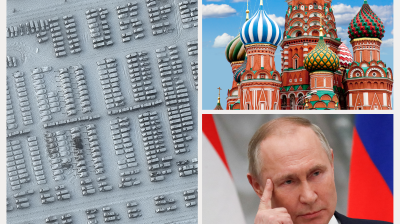Polarisation of attitudes towards Russia in the Netherlands
Tensions are running high between the West and Russia, but they are being perceived differently by various groups in Dutch society. There is much debate in the media about Russia’s demand that other countries respect its sphere of influence in Eastern Europe. Dutch dependence on Russian gas is also in the spotlight at a time of soaring energy prices. Dutch prime minister Rutte and foreign minister Hoekstra have signalled the new government’s clear position by visiting Ukraine. But what do the Dutch people themselves think?
How have Dutch attitudes towards Russia evolved?
Research by the Clingendael Institute at the beginning of 2021 revealed a polarisation of Dutch attitudes towards Russia, in contrast to Dutch attitudes towards China, where there is considerably more consensus. A year later, with Russia again in the geopolitical spotlight, the question is how Dutch attitudes towards Russia have evolved, whether the division of views in Dutch society has continued and, if so, what are the factors behind the division?
In this Alert we present the findings on Dutch attitudes towards Russia, measured in two representative samples in January 2021 (N = 9,300) and the second half of December 2021 (N = 4,800). The findings show that the division in Dutch views on Russia has persisted, even at a time of mounting geopolitical tension. The rise of communautarian thinking in society is creating a new dividing line in politics. People’s attitudes towards foreign relations are guided by their judgements about the way in which the Russian government treats its own community. On the one hand there is a significant minority of people who sympathise with Russian demands and have an affinity with Russia’s promotion of traditional conservative values and national pride. At the other end of the political spectrum is a group calling for international cooperation to be halted on the basis of their negative judgement of Russia’s handling of domestic criticism. In both cases the geopolitical attitudes are therefore informed mainly by sociocultural factors rather than conventional socioeconomic factors or realpolitik.
Sphere of influence
The year 2021 saw the re-emergence of the term ‘sphere of influence’ in international relations, culminating last December in Russia’s demand that NATO halt its eastward expansion and withdraw all NATO troops from countries that joined the alliance after 1997. How do Dutch people view what President Putin presents as a list of security guarantees to ease tensions in Europe? Just over 50% of Dutch people reject the idea of a Russian sphere of influence. However, around 20% of respondents think the Netherlands should understand Russia’s desire to maintain a sphere of influence in countries such as Ukraine and Belarus. It is striking that these percentages remained practically unchanged in 2021 amid mounting geopolitical tensions with Russia. A quarter to a third of respondents express no view, possibly because they do not feel sufficiently informed or engaged. In the January 2021 survey, over 46% of respondents said they were not well informed about Russia’s international role, while over 30% stated a ‘neutral’ view. That means fewer than a quarter considered themselves well informed.
In this Alert we present the findings on Dutch attitudes towards Russia, measured in two representative samples.








